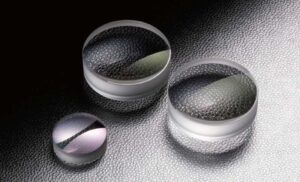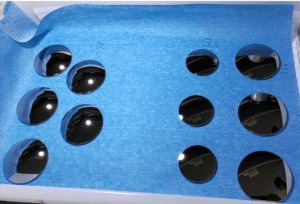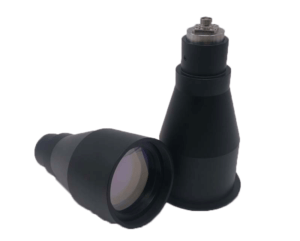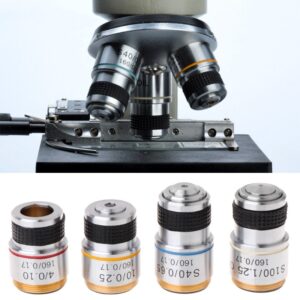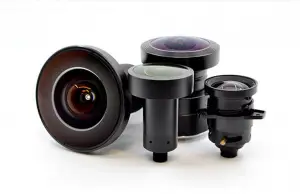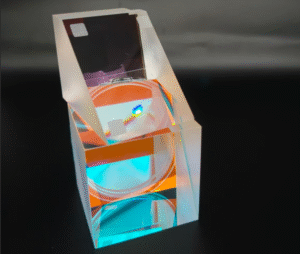Germanium optics are critical components in infrared (IR) systems, prized for their excellent transmission in the 2–14 μm wavelength range. Used in thermal imaging, spectroscopy, gas detection, and defense systems, germanium offers high refractive index, low dispersion, and stable performance across various environments.
At [Your Company Name], we specialize in custom germanium lenses, windows, sheets, and IR assemblies engineered for optimal transmission, durability, and precision.

Why Choose Germanium for Infrared Optics?
Germanium is a semiconductor material with exceptional infrared transmission. It is transparent to mid- and long-wave IR radiation (MWIR/LWIR) and exhibits low optical absorption in this region.
| Feature | Advantage |
|---|---|
| Transmission Range | 2–14 µm |
| High Refractive Index (~4.0) | Enables compact lens designs |
| Low Dispersion | Minimizes chromatic aberrations |
| High Density & Thermal Conductivity | Ideal for demanding environments |
| Machinable & Polishable | Excellent surface finish |
✅ Germanium is opaque to visible light, but ideal for thermal IR.
Optical Properties of Germanium
| Property | Value |
|---|---|
| Refractive Index (10.6 µm) | ~4.002 |
| Transmission Range | 2–14 µm |
| Absorption Coefficient (10 µm) | ~0.001 cm⁻¹ |
| Emissivity | ~0.46 |
| Reflectance (per surface, uncoated) | ~36% |
| Thermal Expansion Coefficient | 5.9 × 10⁻⁶ /°C |
| Density | 5.33 g/cm³ |
Germanium Infrared Optics Applications
Germanium infrared (IR) optics are essential in:
- Thermal imaging cameras (e.g., FLIR systems)
- Infrared spectroscopy instruments
- CO₂ laser systems (10.6 µm)
- Gas detection and environmental sensors
- Aerospace & defense targeting optics
- Medical IR diagnostic equipment
We manufacture components such as:
| Product | Common Sizes | Notes |
|---|---|---|
| Germanium Windows | Ø25.4 mm, Ø50.8 mm | Protective barriers in IR optics |
| Plano-Convex Lenses | Ø12.7–50.8 mm | Focal lengths from 20 mm to 300 mm |
| Aspheric Lenses | Custom | Low-aberration design for IR imaging |
| Germanium Sheets | 50×50 mm to 150×150 mm | Polished or unpolished, for optics or coating substrates |
Absorption Coefficient of Germanium
The absorption coefficient of germanium is very low in the 8–12 μm range, enabling excellent transmission for long-wave infrared (LWIR) systems.
- At 10.6 µm (CO₂ laser), the absorption coefficient is ≈ 0.001 cm⁻¹
- Ensures minimal energy loss through the optic
📌 This makes germanium ideal for high-precision thermal optics and laser applications.
Germanium Sheets and Windows
Germanium glass sheets are often used as base materials for custom lens shaping, windows, or filters. They offer mechanical strength, IR transparency, and can be supplied uncoated or with AR/DLC coatings.
Typical Specifications:
| Parameter | Value |
|---|---|
| Thickness | 1 mm to 10 mm |
| Flatness | λ/4 or better |
| Surface Quality | 40-20 or better |
| Coating Options | Uncoated / DLC / BBAR |
Emissivity of Germanium
The emissivity of germanium ranges from 0.4–0.5, depending on surface condition and wavelength. In thermal optics:
- High emissivity may cause self-heating
- DLC coatings can reduce emissivity while increasing durability
This makes germanium suitable for outdoor IR systems that must resist abrasion and handle thermal loads.
Germanium Luster & Appearance
In its optical form, germanium has a metallic gray luster, polished to a mirror-like finish. Unlike clear visible glass, it blocks visible light and appears opaque or reflective to the eye.
This aesthetic is typical of IR-grade materials and reflects its low transmittance in the visible range.
Germanium Fiber Optics
While not commonly used as a standalone fiber, germanium-doped silica fibers are essential in:
- Fiber amplifiers (EDFAs)
- Wavelength shifting
- IR laser delivery systems
In this context, germanium increases the refractive index of the fiber core to guide light more efficiently.
Why Is Germanium Named Germanium?
Germanium was discovered in 1886 by Clemens Winkler and named after his home country—Germany. Though initially considered a rare element, it is now widely used in semiconductors and infrared optics.
📚 Interesting fact: Germanium is also used in solar cells and infrared detectors due to its bandgap properties.
Surface Coatings for Germanium Optics
Because of its high refractive index, AR coatings are vital for germanium optics to reduce surface reflection (~36% per surface uncoated).
Common coatings:
- 8–12 µm BBAR (Broadband Anti-Reflective): Optimized for thermal imaging
- DLC (Diamond-Like Carbon): Rugged, moisture-resistant, abrasion-resistant
- 3–5 µm or dual-band coatings: For multispectral applications
Germanium Optics Price
Pricing depends on diameter, coating, surface quality, and quantity.
| Product | Size (mm) | Price Range (USD) |
|---|---|---|
| Germanium Window | Ø25.4 x 2 mm | $50 – $90 |
| AR Coated Germanium Lens | Ø25.4, FL=50 mm | $80 – $150 |
| DLC Coated IR Window | Ø50.8 x 3 mm | $120 – $180 |
| Custom Optics Assembly | OEM specs | Contact for quote |
We support bulk orders, OEM manufacturing, and rapid prototyping.
Germanium Optics Cleaning & Handling
- Use alcohol-based cleaners with lens-grade tissue
- Wear gloves to avoid fingerprints or contamination
- Avoid thermal shock (do not rinse hot optics with cold fluid)
- Store in clean, dry, padded containers
🧼 DLC-coated lenses are more durable and easier to maintain in field environments.
Why Choose [Bote Opt] for Germanium Infrared Optics?
- 🏭 Advanced CNC fabrication & polishing lines
- 🔍 Strict QC: Interferometer, scratch-dig, surface inspection
- 🌎 Global shipping & responsive support
- 🛠️ Custom coatings and assemblies available
- 🚀 Fast lead times for both prototypes and volume production
Get a Quote for Germanium Optics Today
Whether you’re building a thermal imaging system, an IR sensor, or need germanium sheets for custom fabrication, we deliver high-precision IR components with competitive pricing and fast turnaround.
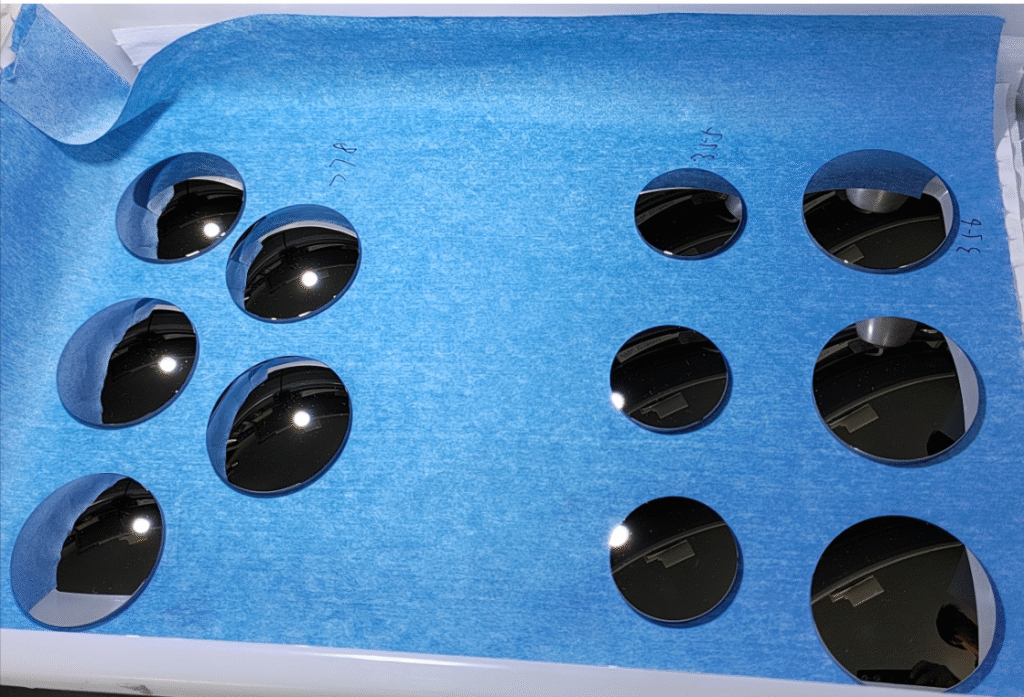
📩 Contact our optical engineers now for design support or a custom quotation.

